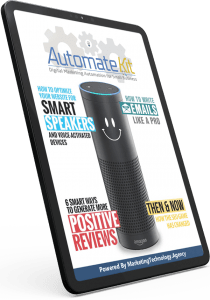No local business can.
With voice search dominating and local searches accounting for fully one-third of all inquiries, any business that’s not prioritizing mobile marketing is likely to end up out in the cold.
So, where should you start? What mobile marketing elements are the most important for local businesses? Fortunately, if you’re new to mobile marketing, there are only three big musts – and if you focus on them, you’ll be able to capitalize on the huge growth in mobile searches.
#1: X Marks the Spot
In the world of marketing and SEO, it’s common for experts to go out of their way to mention that not all searches happen on Google. But guess what? Virtually all mobile searches DO happen on Google – and that’s not an exaggeration. As of 2018, almost 95% of searches on mobile devices were Google searches.
The challenge is clear. Your business must be findable on Google if you’re to have any hope of ranking for local searches and grabbing your share of traffic. And yet, Google Maps rankings incorporate both organic and paid traffic.
The good news for you is that many local businesses aren’t optimized for mobile and local searches. That means you’re in an ideal position to improve your ranking and take your competitors out – if you follow these four steps:
- Run a free directory report to find your company’s listings online and optimize them. It’s important to know where your company information appears and how it looks to maximize your impact on Google.
- Standardize your listings and add your most important keywords to each one.
- Make sure that your location on Google Maps is accurate, so that people can find your business.
- Focus on making your Google My Business listing as perfect as possible. If you haven’t already claimed your business, do so immediately. Then, once you’ve claimed it, choose all categories that apply to your business. Add keywords to your description and put information in every possible section of your listing.
The more accurate and complete your online information is, the easier it will be for Google to recommend your business for searches of your most important keywords – and your location.
#2: Stop Procrastinating and Optimize Your Website for Mobile
It wasn’t that long ago that optimizing for mobile was optional – but that’s no longer the case. According to Statista, 52.5% of all worldwide traffic to websites came from mobile devices in 2018. That number’s only going to grow in 2019 and beyond.
That’s not the only number that matters, either. Mobile users are notoriously impatient when it comes to loading times. According to a Google poll, slow-loading sites were the top complaint of mobile users. And, according to an Akamai case study, the optimal page loading time for conversions was 2.4 seconds. When you take into consideration that the average site took a whopping 22 seconds to load on mobile as of 2018, you can see why there’s room for improvement.
The bottom line? Visitors shouldn’t need to squint or scroll horizontally to navigate your website. It should be easy for them to find what they need – and even more importantly, take the action you want them to take!
Fortunately, the solution is easy. It’s not difficult to build a mobile-optimized website. Your mobile website should include all relevant information from your regular site, including vital information about your products or services. It should also have clear actions for visitors to your site to take, such as:
- Getting directions to your store or office
- Calling your business
- Subscribing to your list
- Making a purchase
- Following you on social media
You may want your mobile site to be a bit simpler than your regular website. You don’t want to overwhelm your visitors. However, you do need to make sure to include the relevant information and keywords that will convince Google to award you a high rank.
#3: Embrace the Potential of Mobile Marketing
You know where your customers are. If you’ve done any audience research at all, you know where they live, what they like, and what they need from you. And, if you’ve got a local business, you know that most of your customers live within a small radius of your business address. It stands to reason – 90% of consumers buy what they need within a short distance of their home or workplace.
A lot of local businesses have been slow to adopt mobile marketing, but it’s one of the best ways to target your audience. You have a few options to consider:
- Running Facebook ads and using the “Call This Business Now” call to action
- Collecting mobile numbers from your existing clients or customers and creating an SMS (text message) marketing campaign
- Intersperse text messages with marketing email to maximize your impact and connect with customers
- Use geofencing to send out offers when people are close to your store
- Run mobile ads – and experiment with various formats such as video, interactive, and native advertising in apps
- Create a mobile app for your business
Whatever mobile marketing techniques you decide to try, make sure that you set detailed targets and measure your results. It’s important to understand how much you’re spending and what your ROI is, so that going forward, you can fine-tune your mobile marketing campaigns to maximize their impact.
Once you’ve run a few campaigns, it’s a good idea to do some split testing and gradually improve your mobile ads’ conversion rates. Mobile marketing can take a bit of trial and error. It’s worth the time and effort to fine-tune your mobile marketing campaigns.
The bottom line is that mobile marketing is a must for local businesses. It provides you with an opportunity to connect directly with your target audience – and give them a reason to patronize your business instead of your competitors.












